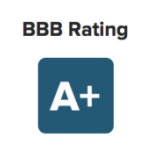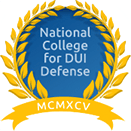Summit NJ Theft by Deception Attorney
Theft by deception is a separate and distinct offense from the standard theft by unlawful taking. Under N.J.S.A. 2C:20-4, theft by deception arises where someone attempts or creates a false impression or deception in order to unfairly acquire something of value from another person. When the item is drugs, a separate charge for obtaining CDS by fraud arises. Whether you have been accused of theft by deception involving a car, credit cards, a construction project (e.g. receipt of deposits and not performing work), insurance or someone other transaction, you need to take these allegations seriously and consult a skilled theft by deception attorney as soon as possible. The reason is because you are facing a felony that carries years in prison unless the value of the property stolen is less than $200.
The Law Offices of Jonathan F. Marshall is a boutique criminal defense firm. We are comprised of eight attorneys, several of whom are former prosecutors, who defend individuals accused of theft by deception and other offenses in Westfield, Scotch Plains, Cranford, Elizabeth, Union and everywhere else in Union County. If you have been charged with theft by deception, our lawyers have over 100 years of combined experience to assist you in reaching the very best outcome of your case at the Superior Court in Elizabeth or any municipal court in the county. The defense team, which is possibly the largest of its kind in the state, has what it takes to successfully defend you against a disorderly persons offense or a crime of the second degree, third degree or fourth degree crime for theft by deception. To speak to an attorney on our staff immediately, contact our office in Union NJ at 908-272-1700 for a free consultation.
How Does Someone Get Convicted Of Theft by Deception in New Jersey?
As previously stated, the offense known as theft by deception arises out of N.J.S.A. 2C:20-4 of the New Jersey Criminal Code. There are several elements that must be established in order for this violation to occur. The accused must:
- Obtain money or property of another;
- Through means of deception; and
- The deception occurred by one of three ways: (a) Creating or reinforcing of a false impression or preventing the other from acquiring information which affected his judgment; or (b) Failing to correct the false impression in those limited instances where he had that duty; or (c) Purposely deceiving another in order to obtain the property.
An example of a theft by deception is where a person induces a lender to provide a loan based on false financial documents concerning income and/or assets.
Is Theft by Deception an Indictable Felony Offense?
Depending on the value of the property involved, theft by deception can be an indictable (i.e. second, third, or fourth degree crime) or non-indictable offense (disorderly persons offense). If the pecuniary value involved is less than $200, then it will be a non-indictable offense and it will be handled by the municipal court where the incident occurred. If the value is at least $200 but less than $500, then the theft by deception is a fourth degree crime. Theft by deception involving between $500 and $75,000, is a third degree crime. In the event that the value involved is $75,000 or more, then it is a second degree crime. These three crimes are indictable and will be handled in Elizabeth NJ at the Union County Superior Court. Each of these crimes has the potential for serious repercussions.
Can I Go to Prison for Theft by Deception?
Prison is a possibility if you are convicted of a felony offense under N.J.S.A. 2C:20-4. In this regard, second degree theft by deception carries a term of imprisonment of between five (5) and ten (10) years. The lesser charge of third degree theft by deception results in between three (3) and five (5) years in state prison. Fourth degree theft by deception exposes the defendant to eighteen (18) months in jail. Finally, the least severe charge for theft by deception is disorderly persons offense, which still allows the court the sentence an individual to six (6) months in the county jail as opposed to “prison” (i.e. state prison). In addition to a term of imprisonment, there is the potential for heavy fines including up to $150,000, $15,000 and $10,000 for a second degree, third degree or fourth degree violation, respectively.
Cranford NJ Theft by Deception Lawyers
For almost two decades, we have been defending cases in Union County from offices located in Cranford and Union Township. The lawyers at the firm certainly have handled their share of theft by deception offenses over this time period. Most of these encounters involved felony charges in Elizabeth although we have also handled many in municipal courts like the one in Linden, Roselle Park, Summit, Rahway and Berkeley Heights. The Law Offices of Jonathan F. Marshall has attorneys with the knowledge and know-how to thoroughly defend and they are available 24/7 at 908-272-1700. Call us now for guidance from a skilled attorney.












